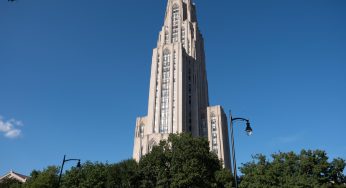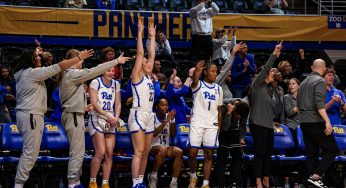Editorial: Syracuse’s self-imposed ban should not influence NCAA investigation
After Syracuse’s loss to Pitt on Saturday, paired with its subpar play throughout the year, the prestigious basketball program’s chances of an NCAA Tournament bid would have been slim. But, this year, performance won’t affect outcome anyway. Syracuse University has implemented a self-imposed postseason ban to address potential academic violations in 2007, but this seemingly laudable move should not impact the NCAA’s investigation into the matter.
Syracuse’s actions are reflective of prioritizing academic integrity over athletics. Nonetheless, we urge the NCAA to continue its investigation into the problem. If Syracuse is guilty of academic violations, its self-imposed ban will not be a sufficient penalty for the program, which would typically consist of loss of scholarships or longer postseason bans. Alternatively, current athletes should not be penalized for wrongdoings that happened almost a decade ago. Following the Jerry Sandusky scandal at Penn State, the NCAA relaxed its transfer policy so players could earn opportunities to play elsewhere, therefore ensuring that it did not unjustly punish innocent student athletes. The same approach must be taken in Syracuse’s case.
This year, the Orange are 15-8 — not their best season. Looking to next year, the traditionally strong program will welcome one of the most impressive recruiting classes of any program in the country. Because Syracuse’s self-imposed postseason ban only lasts one season — and was imposed midway through the year — the NCAA cannot cease its scrutiny of the situation. If the NCAA clears the team, then the Orange should face no sanctions. But if the NCAA finds Syracuse guilty of violations, the prestigious program should face more than a ban on a postseason it perhaps wouldn’t even have had.
Focusing on the current situation, Syracuse’s ban is most unfair to its own athletes. Orange players, such as senior Rakeem Christmas, have no connection to any wrongdoing in 2007, but are paying the consequences at the request of its own program.
This scandal’s impact on players is different from what happened with Penn State’s football program following the Jerry Sandusky scandal. The NCAA decided upon sanctions to target the program itself and allowed other programs to use 2013 scholarships on 2012 Penn State players.
In regard to Syracuse’s basketball program, current students cannot transfer under special circumstances like Penn State football players could following the Sandusky scandal. If the NCAA does, indeed, sanction Syracuse basketball, its athletes should have a chance to continue their basketball careers elsewhere.
Overall, Syracuse’s self-imposed ban raises many questions as to whether or not it is an adequate response to potential academic violations dating back to 2007. Because we do not know what the investigation will find, we cannot say for sure what the appropriate sanctions on Syracuse should be, but precedent shows that lost scholarships may be in the program’s future. The NCAA must diligently consider whether Syracuse deserves to be more heavily sanctioned, while at the same time guarantee that current athletes do not lose their own opportunities because of wrongs committed eight years ago.
Recent Posts
Pitt installs overdose reversal drug dispensers after decade-long push
Pitt’s Student Health Services installed four Naloxone dispensers across campus last week, providing free access…
City and Pitt collaborate on changes to Terrace Street corridor following pedestrian death
The University is conducting a study on pedestrian safety along Terrace Street and has shared…
Photos: Pitt Women’s Basketball defeats SMU and makes comeback history
Pitt women’s basketball defeats SMU 72-59 in the Petersen Events Center on Sunday, Jan. 12,…
Photos: Pitt Men’s Basketball v. Louisville
Pitt men’s basketball fell to Louisville in the Petersen Events Center 78-82 on Saturday, Jan.…
First Place | The World Is Ending
The world is ending. I’ve been stuck on that phrase, and different iterations thereof: the…
Second Place | musings of a pittsburgher
pittsburgh is a city of things underappreciated. my first trip downtown is spent wading through…






